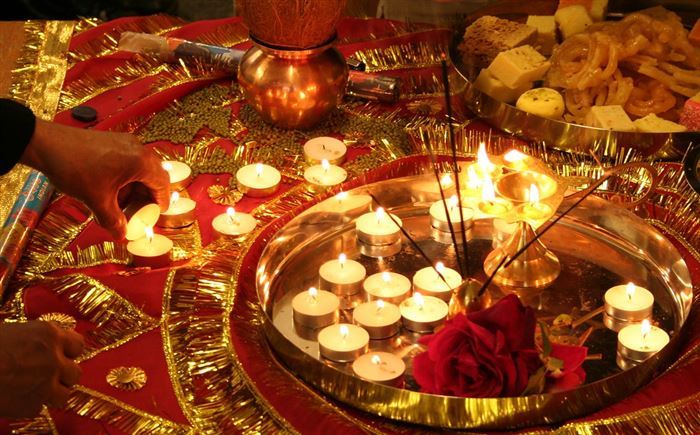Diwali what date

In India, the timing may vary depending on cultural and regional factors, from Friday, November 10, 2023 to Thursday, November 14, 2023.
What is Diwali: A Festival of Lights and Joy
Also known as Deepavali, Diwali is one of the most important and celebrated festivals in India. This article explores the essence of Diwali, its historical origins, the traditions that make it unique, and how it transcends cultural and religious boundaries Let’s explore the brightness, joy and celebration.
The Significance of Diwali
Diwali, the "festival of lights", has great significance in the Indian subcontinent. It symbolizes the triumph of light over darkness and the triumph of good over evil. The festival brings people together irrespective of their faith and symbolizes the triumph of religion. This is a time when families come together to celebrate the goodness of life and embrace hope for the future.
Historical Background
The historical origins of Diwali can be traced back to ancient India. The festival has various historical events across the country, with the return of Lord Rama after defeating Ravana being the most popular. The lighting of lamps and fireworks symbolizes the joyful welcome of the people of Ayodhya for their beloved prince.
Diwali Traditions
Lighting of Diyas
The unique tradition of Diwali is the lighting of diyas (oil lamps) which adorn homes, streets and public spaces. Light is believed to dispel darkness and ignorance.
Fireworks and Crackers
Fireworks and crackers are an integral part of Diwali celebrations. The sky lit up with a burst of colour, signifying the victory of good over evil.
Rangoli Designs
Rangoli, intricate and colorful patterns drawn on the floor is another Diwali tradition. It welcomes visitors and symbolizes prosperity and happiness.
Delicious Diwali Sweets
Diwali is incomplete without desserts like ladoo, jalebis and barfis. These sweets are shared with loved ones and neighbors, spreading taste and happiness.
Exchanging Gifts
Exchanging gifts is a classic Diwali ritual. It strengthens family and friendships and creates a sense of unity.
Diwali Celebrations Across India
Diwali is celebrated with enthusiasm across India, with each region adding its own unique twist to the festival. The harvest season coincides in northern India and is a time of grand feasts and cultural performances. In South India, the goddess of wealth and prosperity is dedicated to Lakshmi.
The Mythological Legends
Diwali is full of legends. There are legendary festivals like the return of Lord Rama, the victory of Krishna over Narakasura and the worship of Goddess Lakshmi.
Diwali in Different Religions
Diwali is mainly a Hindu festival, but is also celebrated by Jains, Sikhs and Buddhists. For Jains, it marks the attainment of Nirvana by Lord Mahavira, while Sikhs celebrate the release of Guru Hargobindji.
Eco-Friendly Diwali Celebrations
In recent years, the environmental impact of Diwali fireworks is becoming increasingly recognized. Many communities are now choosing more environmentally friendly celebrations by focusing on less harmful lights and methods.
Diwali and Family Bonding
Diwali is a time of family reunion. Homes are clean and tidy, and families share meals and celebrate together. It reinforces the importance of family relationships.
Preparations Leading to Diwali
Preparations for Diwali begin weeks in advance. People clean and tidy their homes, buy new clothes and prepare special meals.
Diwali Today: A Global Festival
Diwali transcends its cultural boundaries and is celebrated all over the world. It is a reflection of India’s rich cultural heritage and the impact of the Indian diaspora around the world.
The Spiritual Aspect of Diwali
Though Diwali is known for its joyful celebrations, it also has a spiritual dimension. It is a time for self-examination, prayer, and blessings for a prosperous future.
Diwali's Economic Impact
Diwali has huge economic benefits for businesses, especially in India. Exchanging gifts, buying new clothes and furniture helps boost the economy.
Conclusion
In conclusion, Diwali is a celebration of triumph of light over darkness, good over evil, and family and community unity. The festival has cultural, historical, religious and economic significance. Diwali is truly a spirit of joy, harmony and hope.
Frequently Asked Questions
What is the beginning of Diwali?
- Diwali's origins can be traced back to different historical narratives, with one of the most popular being the return of Lord Rama after defeating Ravana.
Why is Diwali called the "Festival of Light"?
- Diwali is called the "Festival of Lights" because of the tradition of lighting diyas (oil lamps) to symbolize the victory of light over darkness.
How is Diwali celebrated in different parts of India?
- Diwali celebrations vary across India. In North India, it is associated with harvest feasts, while in South India, it is dedicated to the goddess Lakshmi.
Is Diwali just a Hindu festival?
- No, Diwali is celebrated by Jains, Sikhs, Buddhists, and others, each with their own reasons and traditions.
What are the most environmentally friendly ways to celebrate Diwali?
- Eco-friendly Diwali celebrations involve minimizing the use of fireworks and opting for more environmentally conscious practices, such as lighting and decoration.
